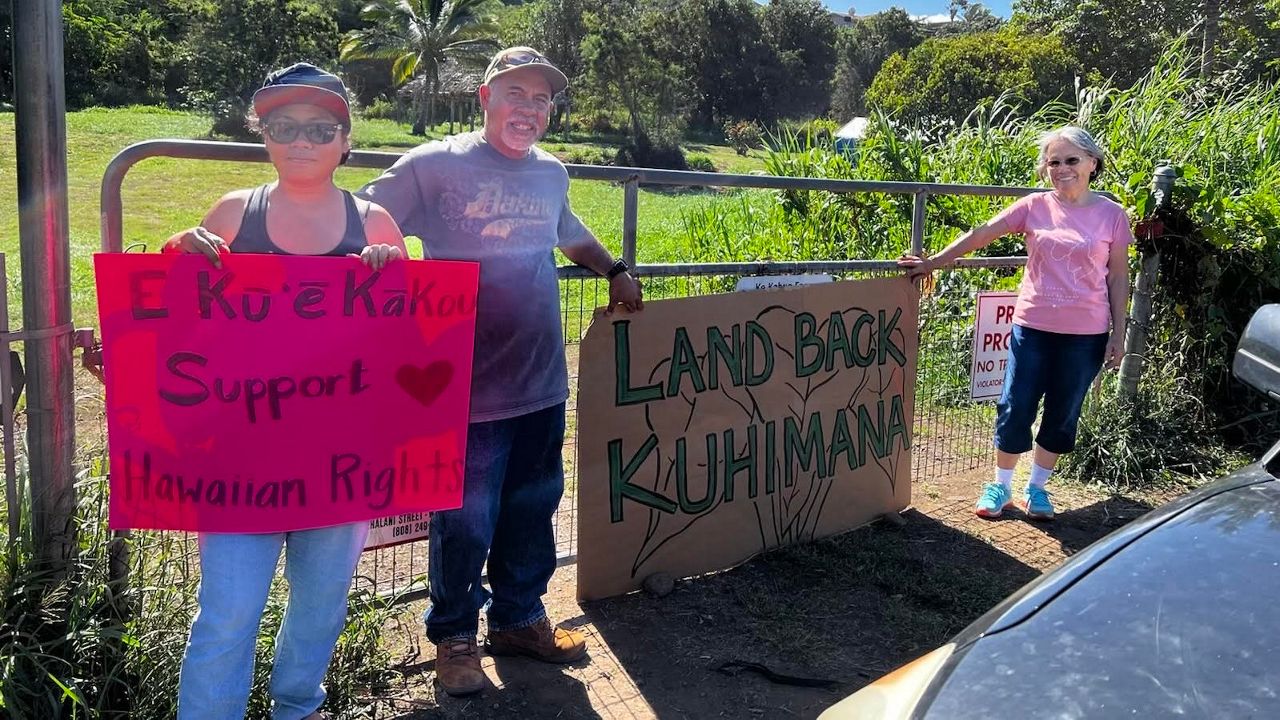An affordable housing development scheduled to break ground this year in Waiehu, Maui, will probably be delayed and could be in jeopardy of a more serious setback as the presumed land owner deals with a challenge from a family that also claims title to the site.
Maui Economic Opportunity, a nonprofit organization that administers a variety of programs to address poverty and related issues on Maui, is working with developer Highridge Costa Companies to build Hale Mahaolu Ke Kahua, a 100% affordable housing community that includes 120 one-, two- and three-bedroom rental units available to households earning 40% to 60% of the area median income.
MEO executive director said the project grew out of a survey 2019 needs survey that affirmed housing as the primary concern of the population the organization serves.
The community would be built on 11.5 acres of land MEO was gifted years ago.
However, about a year and a half ago, with plans for the project already underway, lineal descendants of a man named Pehuino who was awarded the land by the Land Commission during the Great Mahele in 1848 contacted MEO to assert their claim to the property.
Members of the extended family have since been occupying the property in makeshift housing to protect what they identify as sites of cultural and familial significance, including Native Hawaiian burial sites not identified in earlier archeological surveys of the land.
“When (MEO) decided that they were going to develop here, it was upsetting for the family who comes from that land and who still have legal title and claim to that land,” said Noelani Ahia, who is serving as an advocate for the family. “Even if it wasn’t just about the title, they still have a relationship to that aina. Their kupuna are buried in those dunes and in surrounding areas. They are back on the aina to protect it and to make sure nothing bad happens to the land and to their iwi kupuna.”
MEO chief executive officer Debbie Cabebe said MEO’s title derives from a royal patent grant dating back to King Lunalilo’s rule with a clear chain of ownership that runs from Claus Spreckels through developer Stanford Carr and to MEO.
In July, MEO took two Pehuino descendants, Laura and Kahala Johnson, to court on a civil trespassing complaint. Circuit Court Judge Peter Cahill ruled in favor of MEO against Laura Johnson, fining the defendant just $1, but not against Kahala Johnson.
Maui attorney Lance Collins, who has represented Native Hawaiian clients in land disputes and reviewed the court documents and proceedings, said MEO’s action against the two descendants was unusual because it did not legally affirm the organization’s title to the land and did not include the potentially dozens of other family members who could yet challenge their claim.
“For the one (Laura Johnson) that they deemed to have trespassed, non-criminally, they did not need to establish their ownership or authority over the property, they only had to prove that their entitlement to possession was superior to the other person,” he said. “It’s not an action where the court makes a final determination that binds everybody as to who is the owner of the parcel.”
To get such a determination, either side would need to seek what is known as a quiet title action, a legal proceeding to determine ultimate, enforceable legal title to a property. The option was raised during the hearing, but MEO declined.
Regardless, MEO took the ruling against Laura Johnson as sufficient proof of its standing and, on Oct. 17, accompanied by Maui Police Department personnel, issued trespass notices to Pehuino descendants at the property with a request to vacate the area within a week.
On the deadline day, however, several dozen Pehuino descendants and supporters turned out with signs in defiance of MEO’s intent to clear the area.
“We showed up on Monday too, with a lot of community members to protect the family and make sure that MEO didn’t try to bully, steal, take their belongings, damage or destroy anything, which they were threatening to do,” Ahia said. “Thankfully, they (MEO and the police) didn’t come.”
W,here the dispute goes from here is unclear.t
Cabebe said MEO has no further legal action pending and considers the July ruling to be a confirmation of MEO’s claim to the land. Ahia said the family can’t afford to take MEO to court to argue its own claim. Neither has expressed an interest in mediation or arbitration.
“It’s strategically better for (the descendants) to just stay on the aina and wait for them to take us to land court and see if they can prove that they have a clear title,” Ahia said.
Collins said it is unlikely MEO would opt to move forward on the development with the question of the title unresolved.
“They could begin construction, but that will leave them vulnerable to some, at some point, challenging their claims of ownership,” he said. “If they don’t have quiet title, there’s the risk of liability.”
Ahia said she is appreciative of the work MEO does to combat poverty and homelessness on Maui, but disagrees with its leadership’s tactics.
Cabebe, unaccustomed to seeing MEO’s community work cast in such a negative light, remains bewildered at the turn of events.
“It’s just a sad situation,” she said.
Michael Tsai covers local and state politics for Spectrum News Hawaii.



